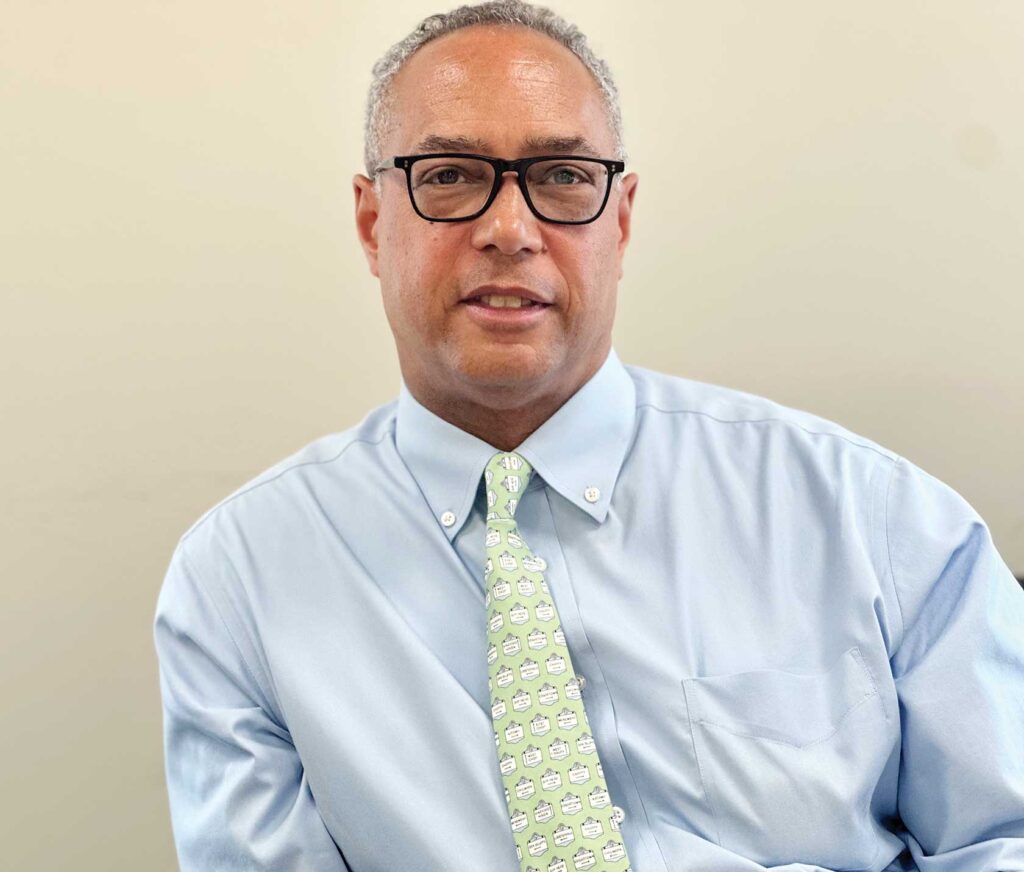‘Just Say No’ led Kevin Hayden to say yes to a career in criminal justice

Who would have thought that the phrase “Just say no” would inspire Suffolk County District Attorney Kevin Hayden to say yes to a career in law enforcement?
“Seeing the war on drugs when I was in high school, people being locked up for petty drug offenses, gang wars related to drug activity going on, and young Black men getting shot, going to jail or both inspired me,” the 64-year-old said.
That inspiration led to the Newton native becoming a criminal defense attorney, assistant district attorney and his current role as Suffolk County district attorney.
Growing up, Hayden didn’t see people that looked like him in such positions of power. Today, things are different.
“We have the Suffolk County Sheriff [Steve Tompkins]; the Suffolk County DA, me; and the Boston Police Commissioner [Michael Cox] who are Black. That’s unprecedented. The three people most directly connected to law enforcement and the criminal legal system are all Black,” he noted.
Seeing people that look like you in power may ease the fears of some, but it’s an uphill battle. According to a 2021 Gallup poll, Black Americans are far less likely than white Americans to have high confidence in the police. Hayden said this is one of the main reasons his office champions community involvement.
“There’s nothing more important than understanding the communities you’re serving. The cornerstone of our approach is community engagement, working on making sure that our officers are engaged with the community. That’s why we’re committed to the community engagement team — not just one person that has the title and does the job, so to speak. … Their job is to not just be engaged in the community, but also to make sure that our officers engage with the community,” he said.
For Hayden and his team, that means meeting people where they are.
“We’re at community meetings. We have community partners that we’re working with,” Hayden emphasized.
These relationships built through community engagement are key to the success of the initiatives coming out of the Suffolk County District Attorney’s office, he said.
Many of the initiatives coming out of Hayden’s office focus on education as a form of prevention. The programs cover everything from fraud to online safety for teens to diversion, finding non-prosecution alternatives whenever possible as a way to keep them from being involved in the court system.
“We have a stop-watch type program, which is an intervention and prevention strategy for young people around these dangers of cell phones,” he said. “We’ve started our Fraud Fighters program which is geared towards our older adults and understanding, again, the dangers that come with cellphones and being defrauded. Oftentimes, when those crimes are occurring, there’s not too much we can do. And so if we’re able to educate people on how to prevent it from happening in the first place, then we’re going to be far more effective in driving those crimes down,” he said.
“We’re going to continue to work and collaborate with the sheriff’s office of the city around returning citizens. Things are very siloed. We’ve got to try to break down some of those silos so that we can be more effective there too,” he added.
The types of crimes he sees and how he approaches them are very different from those of Hayden’s early days as a prosecutor.
“I mean, I look how technology has changed the way cases get tried. You now have cases on video. Literally, the crime is on video. In my time the prosecutor, I never had a crime where the actual crime was on video. I never had that,” he said. “The best practices around data collection, evidence management and how police conduct an investigation from soup to nuts have changed dramatically for the better. But that results in more paperwork, more evidence, more photos, more everything. So you see all that get introduced during the course of a case or a trial. That’s discoverable, and all that has to be turned over to the defense attorney in a case. So that that’s certainly changed.”
With all of the changes to the laws and how they are enforced, Hayden and his office have to work to stay on top of things.
“We’re constantly going through continuing legal education. It’s our duty and responsibility to know the legislation that comes out. We know every chapter and verse. That’s our job. That’s our mission every day,” he said.
Hayden said that making sure that his team is educated in the letter of the law is part of his plan to make sure that those involved in cases that come through his office are treated fairly.
“There’s no cookie-cutter approach to figuring out what to do with a case. Every case is different,” he said. “You’ve got to train up and educate your prosecutors and your team to know how to do the job without any bias, and to do it impartially. But … I’ve never seen a case that’s the same. There’s no one approach as to how you determine what cases should be prosecuted and what cases shouldn’t. Anyone who tells you otherwise is not being truthful.”






